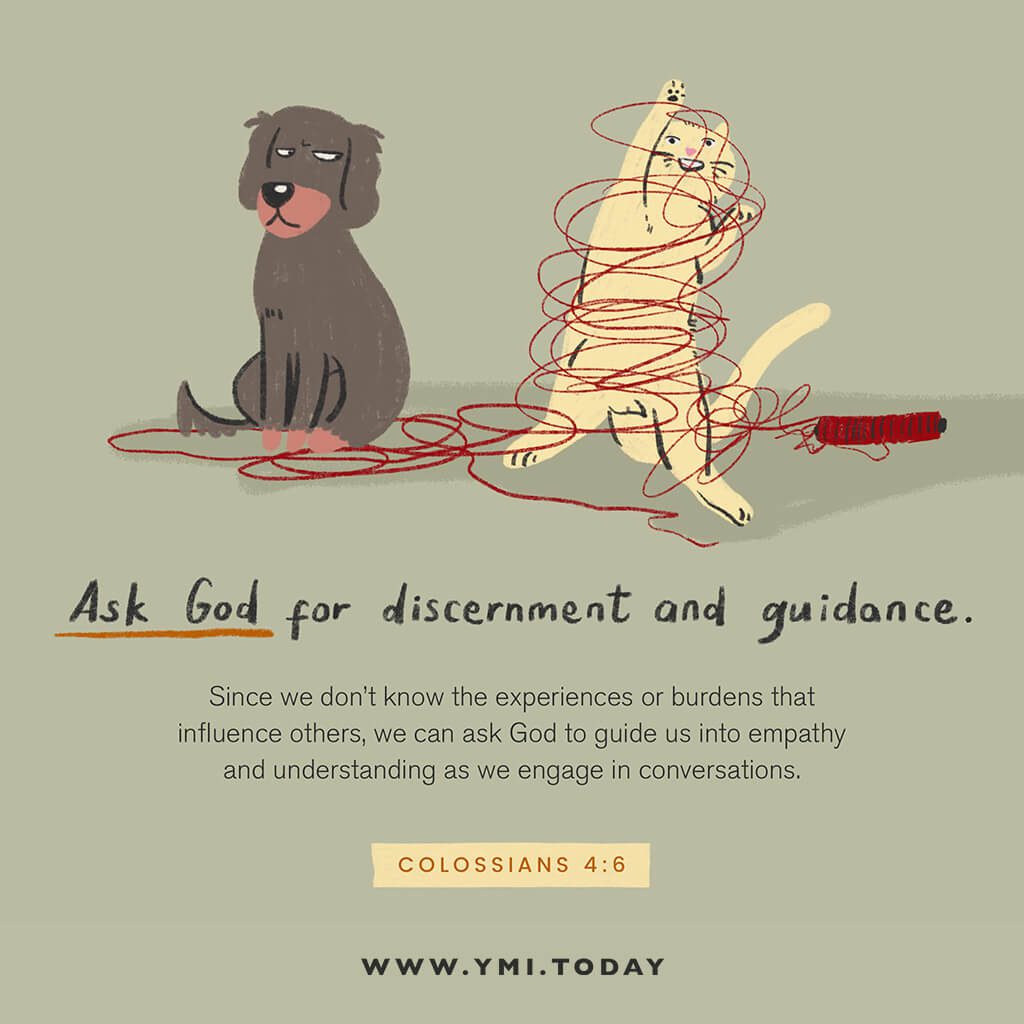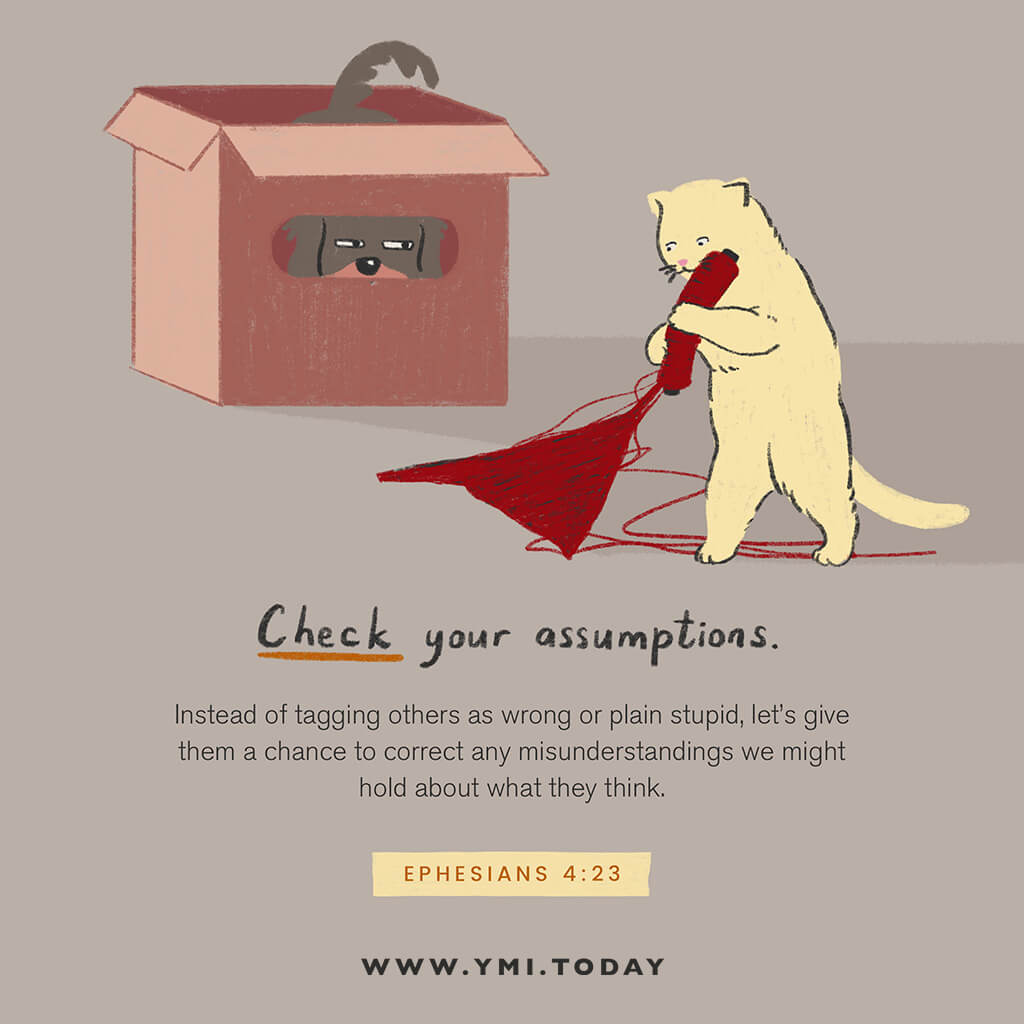4 Ways to Relate to Someone Who Thinks Differently From You
It’s been an eventful year, and unless you’ve been living under a rock, you’ve surely noticed that everyone around you has a different, often heated, opinion about ongoing events.
Amidst social media unfriending, fraught family discussions, and silent judgement of coworkers’ bumper stickers, how do we maintain or build relationships when we seem to disagree so fundamentally on so many different issues?
In one of the Bible’s most famous passages about love, Paul reminds us that even if we spoke in the tongues of angels, or understood all mysteries and possessed all knowledge, or did all the right things, we gain nothing if we lacked love (1 Corinthians 13:1-3).
Instead, we are called to be patient and kind, even in face of fundamental disagreements with family, friends, and coworkers. We should not dishonor others in our words and deeds. Though abhorring evil (and perhaps ignorance and injustice), we must be slow to anger and keep no record of wrongs (1 Corinthians 13:4-7).
It’s a tall order in our current climate.
When some people see the world so differently than us, how can we live up to such an ideal in our interactions? Chances are, we won’t. Not all the time.
Again and again, this failure should drive us to God, seeking His forgiveness and grace to be more loving in our next encounter. But as we try again the next time, here are a few practical ideas on how to relate to someone who thinks differently than us:

1. Ask God for discernment and guidance
Oftentimes, people (including ourselves) hold to strong opinions because of some underlying reason that is not immediately apparent. Perhaps it is an experience they’ve had, or some burden they carry, that shapes their outlook on current events. What might start out as a political conversation may end up revealing past trauma or current insecurities. Every conversation is an opportunity to minister to others (Colossians 4:6), to recognize deep-seated needs, and show the love of God.
As we discuss, let us ask God for discernment and guidance. May He help us to ask the right questions, and be willing to show sympathy and charity.

2. Check your assumptions
When people hold opposing views from us, especially on heated but important topics, it is easy to assume that they are just stupid or wrong. Or perhaps worse, we assume that they don’t care, or are simply seeking their own benefit.
However, it could be that we might not fully understand where they are coming from. If we are to show gentleness and humility in our interactions (Ephesians 4:23), and if our conversations are to have any hope of going anywhere, we need to start by checking these assumptions.
James reminds us that we should be “quick to listen, slow to speak and slow to become angry” (James 1:19). Instead of assuming that we know what a person means by repeating a slogan or staking a stand on an issue, we can check our understanding of their views by rephrasing their ideas. “So you would say that. . .?” gives people a chance to correct any misunderstandings we might have concerning what they think.

3. Seek to understand their point of view
Another important part of listening is to ask good questions. Instead of formulating rebuttals (Proverbs 18:6) or coming up with clever responses to win the argument, let’s try asking, “Can you tell me more about. . .?” or “What do you mean when you say. . .?” Then we step back and give people room to elaborate freely.
Asking questions shows a desire to understand. Even if we disagree with someone, we can show them that we care about them and what they think. This helps both sides to be less defensive, and provides more opportunity for genuine dialogue.

4. Acknowledge the common ground
Differences are important and worth exploring and discussing. But too often, we are so distracted by differences that we forget the common ground we share. No matter how different we might seem on the surface—from our opinions to our age or our backgrounds, we are all humans created in God’s image, and we all have joys, sorrows, and loved ones we care deeply for.
Though our core convictions might have worked to the surface in drastically different ways, let us not forget to look for the opportunity to build bridges, valuing others as better than ourselves (Philippians 2:3).
As we continue to engage with those around us, whether online, at work, or in the home and at church, may God give us patience and wisdom as we seek to love even in the midst of difficult conversations.












greatly appreciate these valuable thoughts & insights. it has come when i needed it the most. God bless you!
Please explain why god created us imperfect. Our next move after a mistake is to seek his forgiveness. Is that not egotistical of god?